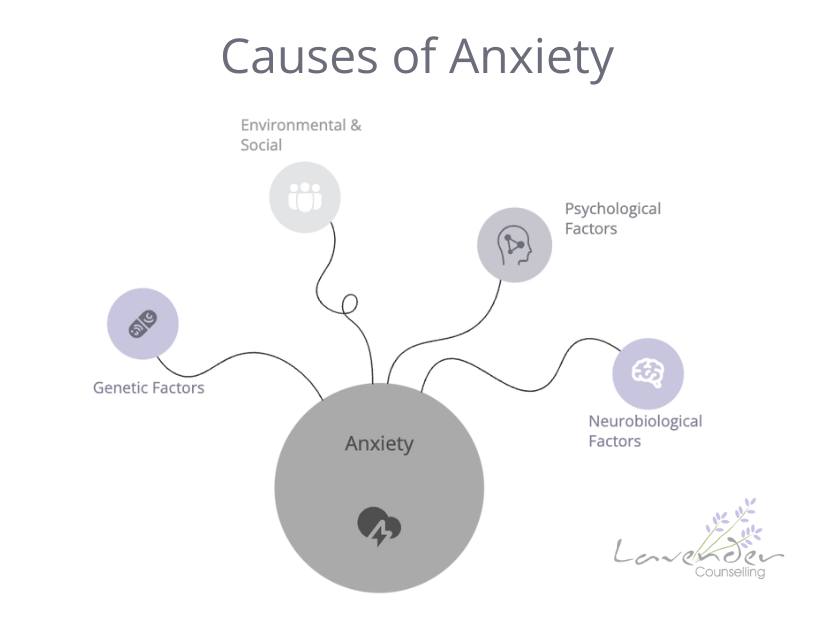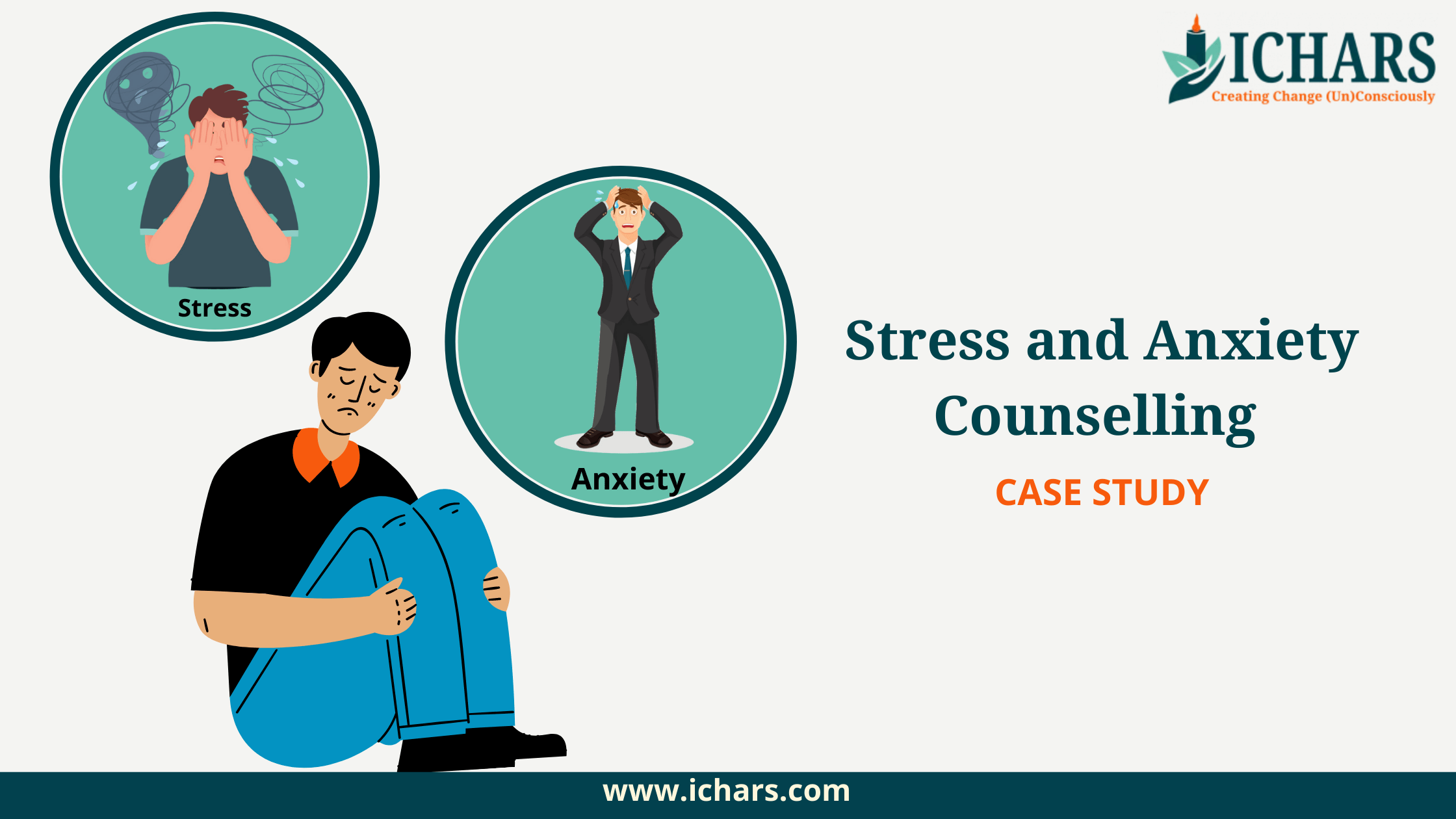How a licensed therapist for anxiety can help you overcome daily stress
How a licensed therapist for anxiety can help you overcome daily stress
Blog Article
Checking Out Different Approaches in Therapy for Anxiety Disorder for Lasting Modification
When dealing with anxiety problems, it's crucial to check out a range of therapy techniques. Each approach uses one-of-a-kind insights and tools to aid you manage your signs successfully. You might locate that combining methods can yield the most effective outcomes. Comprehending the subtleties of these methods is essential to fostering enduring change. What happens if the right combination could launch a new level of psychological wellness for you?
Recognizing Anxiousness Conditions: A Quick Review
Anxiety conditions, which impact millions of people worldwide, can significantly impact every day life. You may experience frustrating feelings of fear or worry that appear uncontrollable. These feelings can lead to physical signs and symptoms like an auto racing heart, sweating, and even lightheadedness. Usual types of stress and anxiety conditions include generalized stress and anxiety problem, panic attack, and social anxiety problem. Each has distinct indications, however they all share a tendency to interrupt your regular and relationships.Understanding the origin causes of your anxiety is crucial. It could originate from genetics, mind chemistry, or life experiences. Acknowledging your triggers can help you manage your feedbacks much better. It is necessary to keep in mind that you're not alone in this battle. Lots of people face similar challenges, and seeking aid is a strong action toward feeling much better. By discovering about anxiousness disorders, you're already on the course to understanding and handling your condition better.
Cognitive-Behavioral Treatment: Testing Negative Idea Patterns
In Cognitive-Behavioral Treatment, you'll start by recognizing the negative thought activates that add to your stress and anxiety. You'll work on changing them with even more favorable alternatives when you acknowledge these ideas. With each other, you'll construct effective coping strategies to aid manage your stress and anxiety in day-to-day situations.
Recognizing Unfavorable Thought Triggers

Identifying the details triggers behind your adverse thoughts can be necessary in taking care of stress and anxiety when you encounter minutes of distress. Beginning by paying focus to circumstances that prompt sensations of worry or anxiety. Is it a crowded area, an approaching target date, or a conversation with particular people? Take down these instances in a journal. This will aid you recognize patterns in your reasoning. Notification physical feelings that accompany your negative ideas, like a racing heart or rigidity in your upper body. By identifying these triggers, you gain understanding into what's fueling your anxiety. Comprehending these connections is the initial step in challenging those ideas and ultimately regaining control over your psychological reactions.
Replacing Thoughts With Positives
Testing adverse thought patterns is a vital action in transforming your way of thinking and decreasing anxiousness. You may typically discover yourself trapped in cycles of self-doubt or tragic reasoning. Instead of allowing these ideas determine your sensations, practice changing them with positive affirmations or reasonable alternatives. For circumstances, when you think, "I can't manage this," change it to, "I can take care of difficulties one action each time." This straightforward change can greatly impact your emotion. Routinely identifying and responding to these negative thoughts helps create a much healthier interior dialogue. Remember, it takes time and initiative, but consistently practicing this technique can bring about long-term change, empowering you to encounter anxiousness with renewed confidence and durability.
Structure Coping Strategies Together
Changing unfavorable thoughts is just the start of managing anxiety efficiently. To create long lasting adjustment, you need to construct coping techniques that empower you. Cognitive-Behavioral Therapy (CBT) aids you identify and challenge those purposeless thought patterns. With each other, you and your counselor can explore how these ideas influence your sensations and behaviors.Start by developing practical methods, like journaling or mindfulness workouts, that allow you to challenge anxiety head-on. When you face your anxieties slowly, you'll learn to react in a different way.

Mindfulness and Acceptance-Based Approaches: Growing Present-Moment Understanding
As you browse the intricacies of stress and anxiety, including mindfulness and acceptance-based techniques can considerably improve your capacity to grow present-moment recognition. By focusing on the below and now, you'll discover that you can observe your thoughts and sensations without judgment (Counseling services for anxiety). This technique aids you recognize your stress and anxiety without really feeling overwhelmed by it.Engaging in mindfulness workouts, such as deep breathing, body scans, or assisted reflections, enables you to ground yourself in your existing experience. Acceptance-based techniques motivate you to welcome your emotions instead than combat against them. When you approve your feelings, they lose their power over you.Incorporating these methods right into your day-to-day routine can change just how you react to anxiety. You'll develop strength and learn to browse demanding scenarios with greater ease. Eventually, growing present-moment awareness lays the foundation for enduring modification, equipping you to lead an extra meeting life
Exposure Treatment: Confronting Fears Gradually
Exposure therapy helps you confront your worries in a progressive method, making it less overwhelming. You'll discover methods to deal with anxiety-provoking circumstances action by action, while additionally developing coping techniques to handle your reactions. This technique encourages you to take control and reduce stress and anxiety in time.
Progressive Exposure Strategies

When facing anxiousness, gradually challenging your concerns can be a powerful way to reclaim control. This strategy, recognized as steady exposure, includes gradually exposing yourself to the circumstances or things that cause your anxiety. Beginning with much less challenging situations and gradually function your way up to even more tough ones. As an example, if you hesitate of public talking, you could begin by speaking before a mirror, then progress to sharing thoughts with a friend, and eventually deal with a little group. Each step aids desensitize you to the fear, developing your confidence with time. Remember, it's important to speed yourself and commemorate small triumphes as you move with this procedure, strengthening your capability to manage anxiety effectively.
Structure Coping Approaches
Structure effective coping strategies is crucial for handling stress and anxiety, especially as you face your worries progressively - Counseling services for anxiety. One powerful approach is exposure therapy, where you begin by facing your concerns in a regulated manner. Begin with much less frightening scenarios and slowly work your means approximately more difficult scenarios. This progressive exposure assists desensitize you to anxiousness triggers, making them less overwhelming.Incorporate leisure methods, such as deep breathing or mindfulness, to relax your mind during exposure. Track your development, commemorating small victories in the process to enhance your confidence. Keep in mind, it's all right to take your time; the goal isn't perfection however consistent improvement. By developing these techniques, you'll equip on your own to browse anxiousness and welcome life more totally
Psychodynamic Therapy: Revealing Origin Causes of Anxiousness
Psychodynamic treatment explores the unconscious mind, disclosing the origin creates of your anxiety. By analyzing your ideas, sensations, and previous experiences, this method aids you uncover underlying disputes and unsettled issues that might add to your present anxiety. You'll collaborate with a therapist to explore childhood years experiences, relationships, and emotional patterns that form your responses today.As you get insight right into these much deeper layers of your psyche, you'll begin to recognize exactly how previous events influence your present habits. This understanding can bring about catharsis, enabling you to process emotions you may have suppressed.Through the healing partnership, you can additionally determine protection systems that might have established in time, supplying a clearer course to change. Inevitably, psychodynamic therapy outfits you with the tools to address your anxiety at its core, advertising long lasting change in your emotional wellness.
Integrative and Holistic Techniques: Combining Strategies for Greater Efficiency
Integrating various healing techniques can boost your trip towards handling anxiety much more properly. By incorporating components from cognitive-behavioral treatment, mindfulness methods, and alternative strategies, you can produce a customized strategy that addresses your one-of-a-kind needs. As an example, you might make use of cognitive-behavioral methods to challenge adverse thought patterns while including mindfulness workouts to ground yourself in today moment.Additionally, checking out alternative techniques such as yoga or meditation can advertise relaxation and decrease anxiousness symptoms. This mix enables you to develop greater self-awareness and resilience.Experimenting with these diverse approaches can help you uncover what resonates most with you. Keep in mind, it's about finding a harmony that works, rather than adhering to a single method. This integrative method not only provides immediate alleviation yet also promotes long-lasting skills for managing anxiousness, encouraging you to recover control over your life.
The Function of Support Solutions: Structure Strength With Link
While it could appear that taking care of stress and anxiety is a solitary journey, having a solid support system can play an important function in your resilience. Surrounding yourself with empathetic close friends, family, or support system creates a risk-free space where you can openly share your experiences and sensations. When you connect with others, you remind on your own that you're not alone in this struggle.These partnerships use inspiration and can give functional coping strategies that have actually helped others. It's likewise a possibility to gain viewpoint; friends can assist you see circumstances in a different way, reducing feelings of isolation.Moreover, psychological assistance promotes a feeling of belonging, which can substantially relieve stress and anxiety signs and symptoms. By leaning on your assistance system, you can construct durability and tackle difficulties better. Bear in mind, getting to out for assistance suggests stamina, and it can make all the difference in your journey towards managing stress and anxiety.
Frequently Asked Questions
What Are the Usual Symptoms of Anxiety Conditions?
You could experience restlessness, exhaustion, trouble focusing, irritability, muscular tissue stress, and sleep disruptions. Physical symptoms can include fast heartbeat, sweating, and shivering. Recognizing these signs early can aid you seek proper support and therapy.
The Length Of Time Does Treatment Normally Last for Anxiousness Disorders?
Therapy for anxiousness problems commonly lasts anywhere from a few weeks to numerous months. It actually relies on your specific requirements, progression, and the methods your therapist uses to aid you manage your stress and anxiety effectively.
Can Medicine Be Made Use Of Together With Therapy for Anxiety?
Yes, drug can definitely be used along with treatment for anxiety. Incorporating both strategies frequently enhances therapy efficiency, aiding you take care of signs while exploring underlying problems through therapy (Counseling services for anxiety). Always consult your doctor for individualized guidance
Exist Self-Help Techniques for Managing Anxiousness?
Yes, there are a number of self-help approaches for handling stress and anxiety. You can practice mindfulness, involve in normal workout, maintain a balanced diet plan, establish a routine, and utilize deep breathing methods to help in reducing anxiousness signs successfully.
Just how Do I Know if I Need Specialist Help for Anxiousness?

Report this page